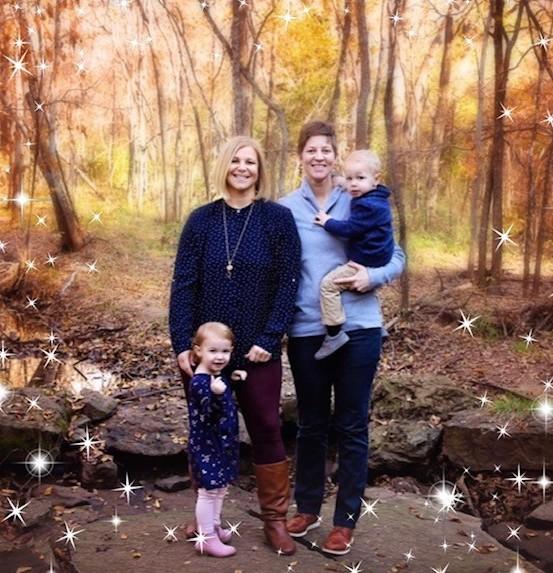
Champion every day
Melinda Carter uses lessons learned from professional soccer and coaching to support social and emotional learning.
Author: Melinda Carter

Melinda Carter uses lessons learned from professional soccer and coaching to support social and emotional learning.
Author: Melinda Carter
In middle and high school, Melinda Carter wanted only one label—champion. It’s a label she’s earned many times in her 20-year career as a professional soccer player, a coach and a special education teacher.
Now a Culture Coach for RISD Academy in Richardson, Texas, where she helps the district implement social-emotional learning and restorative practices in her school community, Melinda remembers when her classmates attempted to give her a very different label.
If you were old enough to watch Saturday Night Live in the early 1990s, then you’re probably familiar with Pat, an androgynous character whose indeterminate gender was the “joke” of SNL’s “It’s Pat” sketches. (Never heard of “It’s Pat”? You know YouTube has you covered.) Pat at the gym, at the office, at the barber—SNL didn’t tire of having people guess at Pat’s gender for a laugh. The sketch even became a feature film.
At the time, Melinda was in middle school in Texas, and her classmates thought Pat was hilarious. They also saw Melinda as a target for similar jokes, singing the “It’s Pat” theme song as she entered the cafeteria or calling her Pat “on accident.”
Yet Melinda wasn’t socially awkward or shy like the character, and she was not self-conscious about her sexuality. She was strong willed, self-confident and an open book. There was no need for anyone to question her—she confidently came out in high school.
A top soccer player at her school, she credits sports—and a fierce competitive streak—with boosting her confidence and keeping her focused through high school. She wanted to show her classmates, her teachers and anyone else who doubted her that she was a winner above all else.
In college in South Carolina, she had a girlfriend, a full-ride soccer scholarship and a pro soccer career on the horizon. She studied kinesiology and earned her teaching certificate to become a teacher. She knew she wanted to teach and coach after her soccer career.
Upon graduation from The University of South Carolina, she played for the San Jose CyberRays and the Atlanta Beat, both professional women’s soccer teams in the WUSA. Unfortunately, the league eventually went under, and Melinda took her first teaching and coaching job while she waited for news if the league would recover.
In the meantime, she enjoyed working with students and playing every day. During this time, she worked with students who, like herself in high school, thrived in school because of sports. They needed movement, positive reinforcement and teamwork.
After several years of coaching, Melinda had the opportunity to teach a unique course that partnered special needs students with her general education PE class. As she worked with another group of students who could defy their own labels through positive supports and innovative programs, it further fostered a need to do more. She knew her next move would be to work in special education and administration.
Now, as Culture Coach for her school, she brings the lessons of team sports and perseverance to be a champion for students every day. She still coaches students, teachers and parents, only now she coaches for positive behavior supports, social-emotional learning, civility and restorative conflict resolution.
Now, if she sees a group of students picking on another student with the modern-day equivalent of the “It’s Pat” theme song, she uses community building and social-emotional learning to teach students how to make it right and understand the perspectives of others—the key goal of restorative justice.
Melinda has been doing what she set out to do in high school—winning at whatever she set her mind to. She played professional soccer, was the first in her family to graduate college and has a career she loves with flexibility to grow. Now, she and her wife of 10 years are raising a family and she’s working to become a BCBA (Board Certified Behavior Analyst).

When she thinks about what Pride means, she thinks back to the kid who didn’t want to be labeled by others, but who wanted to create a label for herself. Now she wants that freedom for her own children and her students.
“Pride means to be free from unwanted labels. It means to live free. Everyone deserves to have a place to express themselves with dignity. Restorative practices and positive behavior support teach students and adults to potentially change lenses and widen their scope. It’s contagious. And once you know better, you can do better.”
To be an ally for students, Melinda hopes teachers will honor the different identities students bring to school, which may change from day to day, week to week, year to year. And she hopes adults extend that dignity to themselves and other adults.
“For people in school to be teachers right now, I hope that how you identify isn’t a deterrent for the profession. If you’re not in a supportive environment, reach out to mentors. Be resourceful. Find the helpers. Because we need teachers. Good teachers. Adults in students’ lives to be their unconditional champions.”
Are you ready to join Melinda in her quest for educational equity? Wondering which teaching programs are a good fit for your background and skills?
Sign up for free advising from a TeachDFW career coach to learn more about teaching and teacher preparation programs. No question is off-limits.